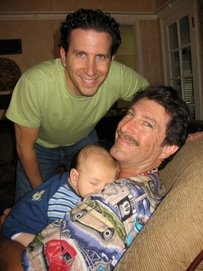It appears I continue to have to back up each time I discuss apartments. I started with how to buy an apartment building, then why to buy one, and now I am hearing the objection that tenants create major headaches and damage. It's the fear of the three "Ts"; tenants, toilets and trash. Well let’s solve the tenant one now.
One person complained that they have a resident manager who seems to listen to the hard luck stories of tenants who are consistently late on rent. They were not sure if they should continue with the 3-day notices and eviction threats. While they said their current screening is much better than in the past, they inherited some problem tenants and asked what I would suggest to deal with late paying tenants. Here is what we discussed and what I said:
It seems like you have several things going on at the same time. One involves training your manager, but maybe that’s been handled because you say your screening is better now. I think the apartment association does seminars to help in this area.
Regarding the tenants, in addition to the screening, I think you have a couple of choices. First, you or your manager must be diligent with your 3-day notices to train your tenants that the rent is due on time. If you get sloppy, the tenants will get sloppy.
Second, you can interview the tenants to see how you can help them pay the rent on time. There are services that do automatic bank drafts for rent payments. But what if your tenants don’t have a checking account?
You can train your tenants how to handle money more effectively. I hope you know how. If you own apartment units, I expect that would be the case. However, I’ve discovered that 90% of our population has not been taught money skills, not from their parents and not in the schools. How can people be expected to know how to budget for their rent, car payments, groceries, and everything else, when barely anyone has been taught?
Many years ago I came upon a novel way to solve the problem of tenants who continually paid late or had rent checks bounce. These particular tenants, a husband and wife, had good jobs, earned a good living and had good credit based on their reports when they moved in. When I sat down to talk with them about the problem, they admitted they were never taught “how” to budget. I suspected this because I’ve been teaching these skills in classes at UCLA for over 10 years. After a few years of meeting thousands of people who lack budgeting skills you know the signs to look for.
We sat down and went over the concepts and practical tools of a budget. I actually call this a “spending plan.” We talk about spending money in alignment with the goals they want to achieve. I find more people like to “spend money” than those who like to “budget.” We talked about planning for the unexpected. For example, we all know a car will break down, or need service; we just don’t know when. I showed them how to plan for these expenses, how to “pay themselves first” and how to set financial goals.
Next, we set up their budget based on their income and lifestyle. In three months they had saved an extra month’s rent in a separate account. They were never late or had a check bounce again. They stayed another two years before buying a house and moving out.
In Los Angeles we have rent control and we are limited to a 4% annual increase to current tenants and on July 1 that changes to 5%. When someone moves out we can peg the rent to market rates. I give each of my tenants a copy of my Wealth On Any Income book, (buy at Amazon) and my guess is that 50% of my tenants move out because they’ve purchased a home.
If someone doesn’t feel confident in training a resident manager, or training their tenants themselves, they can read my book first, or provide a copy of my book to the tenant or the manager. That’s an easy way to get the job done.



No comments:
Post a Comment